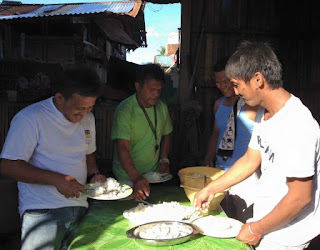One of the the oldest myths when it comes to academia is to think that the scholar is bereft of meaningful and practical contributions to human development. The idea is to find the balance in order to succeed as a scholar and a development worker. Dr. Rogelio Bayod, who is a Visiting Professor at the American University of Sovereign Nations (AUSN) and professor of ethics at Cor Jesu College, is a case in point. Dr. Bayod has been immersed in conflict communities and has learnt about their way of life. In the process he has been giving advice and training to local government units in Davao del Sur on leadership and development planning. He leads the biggest organization of campus advisers in the Philippines. At the same time, he is the third Most Cited Social Ethics Society (SES) member in Google Scholar and the third Most Read in ResearchGate.
"Poverty is not about the lack of resources. It is rooted in structural injustices. To help the poor, you have to live with them," explains Dr. Christopher Ryan Maboloc, co-founder of the SES. Dr. Romulo Bautista envisioned the SES to enable philosophy to go beyond the classroom. "Dr. Bautista wanted the SES to be a contributor to nation building, " says Dr. Maboloc. Such a vision came into fruition with the arrival of Dr. Bayod, Dr. Randy Tudy, and Dr. Moises Torrentira Jr., who are all development scholars. "People have this prejudice against academics without first looking into their track record," the SES Chair noted. "Some people in academia need to understand that beyond any advocacy, one has to go to the grassroots and do the work necessary to truly liberate the poor," he adds. Dr. Maboloc, together with Engr. Joseph Dumogho, is the co-founder of a tech-voc training center in Davao City that has provided free TESDA accredited courses to more than 2,000 graduates since 2011.


